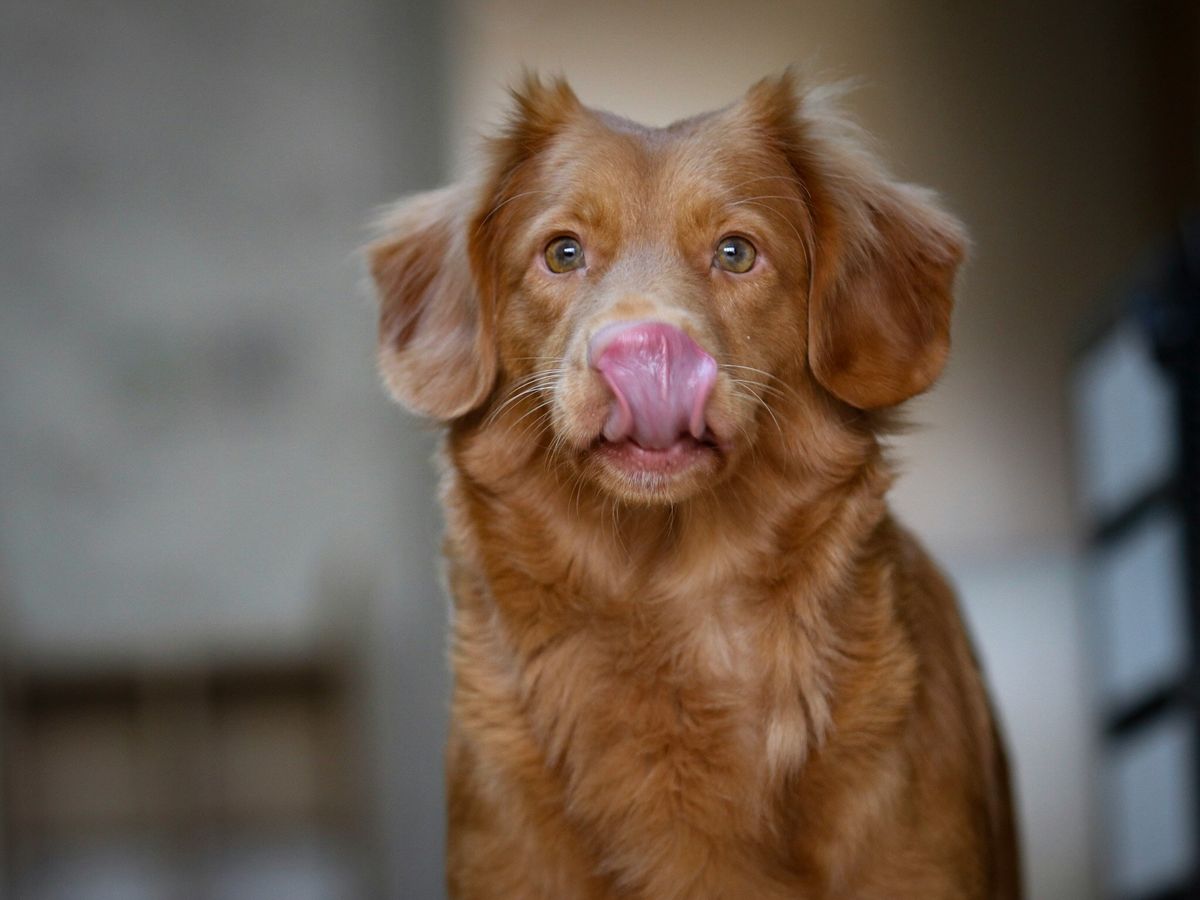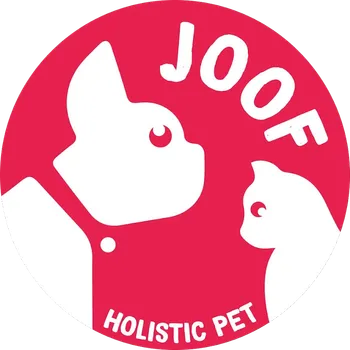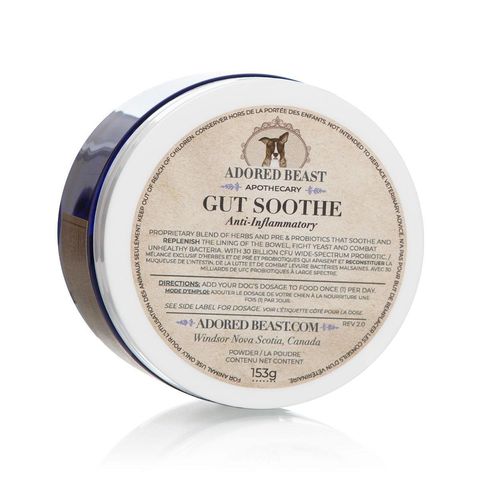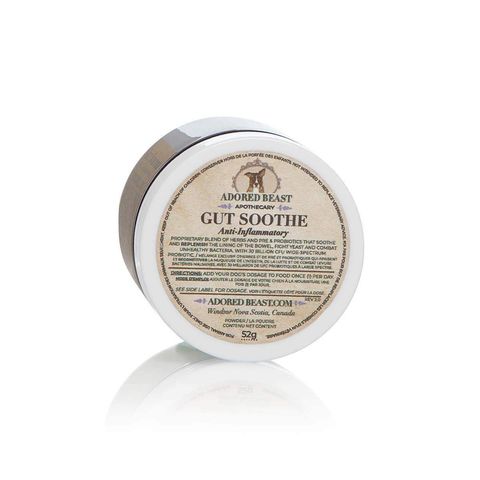
Recommended Article #09Mar24
Hi, Pet Parents Resources is a platform, where we share with you, what we research as pet parents ourselves. Here, we curate and give, what we hope would be, interesting to important informative articles, videos and even podcasts from our brand creators, experts, researchers, and more all over the world, to aid you in making better choices for your pets.
This recommended article "Acid Reflux in Dogs: Symptoms & Management" is curated and sourced from Adored Beast Apothecary. If you loved this article, please do feel free to share it around.
Acid Reflux in Dogs: Symptoms & Management
Many of us have experienced it – that uncomfortable feeling after we’ve eaten a big meal, or a particularly spicy dish. The burning sensation in our throat or chest…
And our dogs can experience it too – although usually not because of a plate of hot wings (although that would probably do it, to be fair). And their experience is very similar to what happens to us.
Acid reflux in dogs is fairly common, and it can happen to any dog, at any age, although it tends to be more common in younger dogs, or in brachycephalic breeds like pugs that have a shorter esophagus.
So, how can you recognize when your dog is uncomfortable, and what can you do to manage acid reflux?
What is Acid Reflux in Dogs?
Acid reflux in dogs (just as with humans), occurs when acid from the stomach flows up into the esophagus.
Typically, these fluids shouldn’t be able to make their way into the esophagus. The sphincter (a muscle opening at the base of the esophagus) should tighten up, blocking the opening, keeping the acids from coming up.
When a dog gets acid reflux, it occurs because that muscle is relaxed, and the opening allows the fluids to flow upwards into the esophagus. That’s when you get the inflammation, the irritation, and the resulting symptoms.
What are those symptoms you ask? That’s a good question – you want to be able to spot acid reflux to be able to manage it.
Symptoms of acid reflux include:
- Lip licking or trying to lick the air
- Decreased or increased appetite
- Unprogressive vomiting or vomiting bile
- Chewing their legs or feet (to self-soothe)
- Grinding their teeth or snapping their jaw
- Burping or gagging
- Eating grass or other inanimate objects
- Painful swallowing (they may cry or whine)
- Regurgitation of their food (This is not the same as vomiting – it’s usually far more frantic and comes without warning. Regurgitated food is usually undigested.)
- Weight loss
- Restlessness or signs of discomfort
Ok, now we know how to spot it – so what can we do about it? Well, we start by identifying causes…
What Causes This?
There are many different things that can lead to acid reflux, either infrequent bouts or more chronic episodes.
- Highly processed diet
- Nutrient deficiencies
- Food sensitivities
- Stress
- Microbiome imbalance (SIBO, yeast, bacterial overgrowth, parasites)
- Inflammation of the digestive tract
- IBD especially if they have issues in the upper area of the digestive tract
- An autoimmune disease like megaesophagus
- Obesity
- A foreign body
- Chronic vomiting from an underlying condition such as pancreatitis, liver or kidney issues, or even IBD
- Esophageal sphincters not fully developed (that’s why it’s more common in younger dogs)
- Tumors
- Trauma (to the throat – for example, excessive leash force, damage from a foreign body, or impalement)
Some of these things (diet, stress, etc.) you can deal with at home, while others will need the assistance of your trusted veterinarian, particularly if the acid reflux is ongoing and frequent. In that case, you should make an appointment to make sure something else isn’t going on.
Managing Acid Reflux
To help curb the acid reflux, there are a variety of things you can do to help your animal.
Start by addressing diet. Processed foods and sugars can cause inflammation in your dog’s stomach, decreasing acid levels, triggering acid reflux symptoms. Instead, consider moving to a fresh, whole food diet rich in easily digestible proteins, healthy fats, and a wide variety of colourful vegetables. This can help support the gut and help balance stomach acid levels.
Try not to let their stomach get empty. For example, at bedtime, you can give a snack (a substantial one) and add some of our Gut Soothe to help calm the gut. Or, divide your dog’s daily food into smaller portions and feed more frequently throughout the day, giving the last portion before bed (add the Gut Soothe in this case as well). A great bedtime snack is a small amount of mashed banana, mixed with a small amount of ginger tea, to form a slurry or paste, that your dog can easily eat.
Reducing stress in your dog’s environment can also contribute to an improvement in acid reflux symptoms. Stress often results in the release of cortisol, which can slow down the digestive process.
Exercise can also be valuable – not just for acid reflux, but for overall health in general. All dogs need exercise to maintain health, but there is a link between obesity and odic reflux symptoms, so if your animal could lose a few pounds, definitely consider addressing this. And exercise improves digestion, which in turn can reduce acid reflux symptoms. Just make sure to give your dog some time after eating to digest before heading out for a walk.
Different supplements can also be incredibly helpful for acid reflux in dogs.
- Slippery elm coats the esophagus, enhancing reflux stimulation of nerve endings in the gastrointestinal tract, leading to increased mucus secretion. Because of this, slippery elm is supportive in the prevention of the irritation and inflammation that occurs when stomach acid flows up the esophagus.
- Deglycyrrhised licorice (DGL), like slippery elm, is a demulcent, so it can help soothe the esophageal and digestive linings. DGL also to create extra mucus, acting as a barrier to acid in the stomach and oesophagus. This barrier may allow the damaged tissue to heal and prevent future occurrences of acid reflux.
- Probiotics help encourage a healthy colony of friendly bacteria in the gut (and subsequently the whole body), which can help to crowd up harmful bacteria and equip the body to be better set to handle digestive upset.
- L–Glutamine supports the mucous membranes and the linings in the gut, and can help protect against the irritants than cause inflammation in the gut and esophageal lining.
- Digestive Enzymes assist the body in breaking down food, working to improve the digestive process as well as improving bioavailability of food. This means more nutrients being made accessible by the body!
- Chamomile or ginger teas are also great at decreasing inflammation. They can be really nice for additional hydration as well.
We never want our animals to be uncomfortable, so learning how to recognize the signs of acid reflux in dogs – and how to manage it – is important. We hope this helps!
You may find more interesting reads from JOOF Holistic Pet today! Look out for loads of information on our product pages, social media, especially our Pet Parent Resources page.
JOOF Holistic Pet, a Singapore online pet store that focuses on the holistic well-being of your beloved furkid. Our recommended products aim to support and improve health, emotional and physical well-being, and help your pet have a better quality of life without compromise. Look out for Essential, Trendy and Premium quality pet products that are specially curated, with the pet parents concerns' as a priority.
This blog first appeared on the Adored Beast Apothecary website, where the article "Acid Reflux in Dogs: Symptoms & Management" was curated and sourced from.
Original source: https://blog.adoredbeast.com/acid-reflux-in-dogs-symptoms-management/
Thank you for reading! We hope to bring you more informative and exciting articles from other resources and our varying retail brands. Through them, we hope more and more pet parents could become their pet's wellness heroes, proactively taking control of their pets’ foundational health from within, with JOOF Holistic Pet - www.joofholisticpet.sg 😊
Disclaimer:
JOOF Holistic Pet has curated and reproduced this article in good faith, which may contain an element of consumer opinion, but cannot be held responsible for any information inaccuracies in it or any use assumed from this information by the reader. JOOF Holistic Pet welcomes positive recommendations for holistic healthcare products, but does not necessarily endorse the author’s opinion. We acknowledge each animal is an individual and may react differently to the highlighted product/s, and that there may also be other similar effective products available.
General recommendations made by JOOF Holistic Pet are solely for informational and educational purposes, and are not a substitute for the appropriate veterinary care. It is important to always consult professional help if you have concerns about your furkid’s health.


